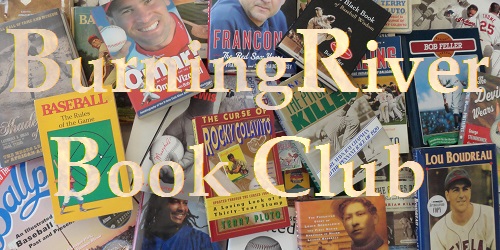Have you ever heard of Curt Flood? It’s embarrassing, but despite the fact that he may have been one of the most important players ever to play the game, I didn’t know a thing about him before picking up this book. I had heard of the quote “A well-paid slave is still a slave,” but didn’t know it was Flood who said it or that it was Flood, along with Marvin Miller, who started the tidal wave that would eventually change the reserve clause forever and bring about free agency, not just in baseball, but across all sports.
The author of A Well Paid Slave, Brad Snyder never met Flood and wrote the story over 30 years after free agency began, but it would have been hard to find a more fitting or more passionate writer. As a former lawyer and huge baseball fan, Snyder had the perfect knowledge of both aspects to write this story. The story of Flood began on the baseball diamond, but ended in the Supreme Court and all along the way there were few who could incorporate both sides.
I said in the opening that Flood was one of the most important players in baseball history and that isn’t a misnomer. Just like Branch Rickey specifically chose Jackie Robinson to break the color barrier not only because of his talent, but also his demeanor, it took a special combination of factors for Flood’s case to work. First, he was extremely talented and well known at the time, winning seven Gold Gloves, going to three All-Star games and receiving MVP votes in six seasons. Secondly, he had the political background (largely thanks to Robinson) to have beliefs and to make them known. Finally, he had the conviction to stick to his work through incredible hardship and what must have been nearly unbearable strain.
The book itself is a combination of things. It does serve as a pretty complete biography of Flood, covering his youth, baseball career, lawsuit and his retirement up until his death at the age of just 59. It also does an extremely thorough job of covering his case itself, without giving up too many spoilers for those who somehow didn’t already know the end result. Each level is brought in order with great attention to detail including background on all people involved from lawyers to judges and owners to commissioner Bowie Kuhn. With a section of notes and bibliography that nears 100 pages at the end of the book, no one can say that Snyder didn’t do his research.
Without going into too much detail about the book itself, there were a few points that I found particularly interesting that could still have some bearing today. One of these things is that the main subject of the lawsuit seemed to keep changing. Flood and Miller (and the players union behind him) were mostly coming at baseball with an antitrust case a previous case had said that MLB wasn’t a monopoly because it wasn’t interstate commerce, but there was also a 14th amendment issue. On the other side, MLB argued that it wasn’t an antitrust issue because the players were unionized and that the actual plaintiff wasn’t Flood seeking damages for the 1970 season, but the players union as a whole.
A very interesting argument that baseball wasn’t a monopoly came from Supreme Court justice Harry Blackmun in his case deciding decision to go against Flood. He essentially argued that baseball isn’t a monopoly, because it only effects the players, not the consumers. This was not an argument used by Major League Baseball, but it is a solid one even today. You could say that MLB has a monopoly on professional baseball, but they are nowhere near having a monopoly on sports entertainment. If baseball teams charged so much for tickets (or TV rights) that no one could afford them, people would go to more football, basketball and hockey games while at the same time there would likely be an increase in interest in independent baseball as well as high school and college level games. Major League Baseball can’t treat fans like an actual monopoly because there are competitors.
For the players, however, there doesn’t remain another real option. Yes, a professional baseball player could leave the game at any time and, like Mike Melaragno is oft to say “go drive a Pepsi truck,” but there are few other real options for them to play baseball professionally. Now, players do have the option of going to South Korea, Japan or Mexico among other places, but in Flood’s day that would lead to a player being blackballed. This was likely one of his strongest arguments in the 14th amendment/slavery line of thinking, but it wasn’t greatly discussed in the book compared to some other points.
In all, Flood’s story is enthralling. It’s so much more than a legal battle as Kuhn and MLB did everything they could to ruin Flood and it almost worked. While he lost his bid in the Supreme Court, the players won in the end and every subsequent change to the reserve clause, including the 10-5 no trade clause and free agency came from Flood’s sacrifice. It may have been inevitable that eventually the players would stand up for their freedom, but Flood’s was the perfect situation to take advantage of and it eventually worked out perfectly for the players.
While this is a great book for baseball fans, it should be a must read for professional baseball players. Every player who ever signed a deal worth more than $100,000 or took advantage of a no trade clause or had the right to bring an arbitration case in front of an unbiased party obtained that right from Curt Flood and Marvin Miller and they should know it.
Add The Sports Daily to your Google News Feed!
